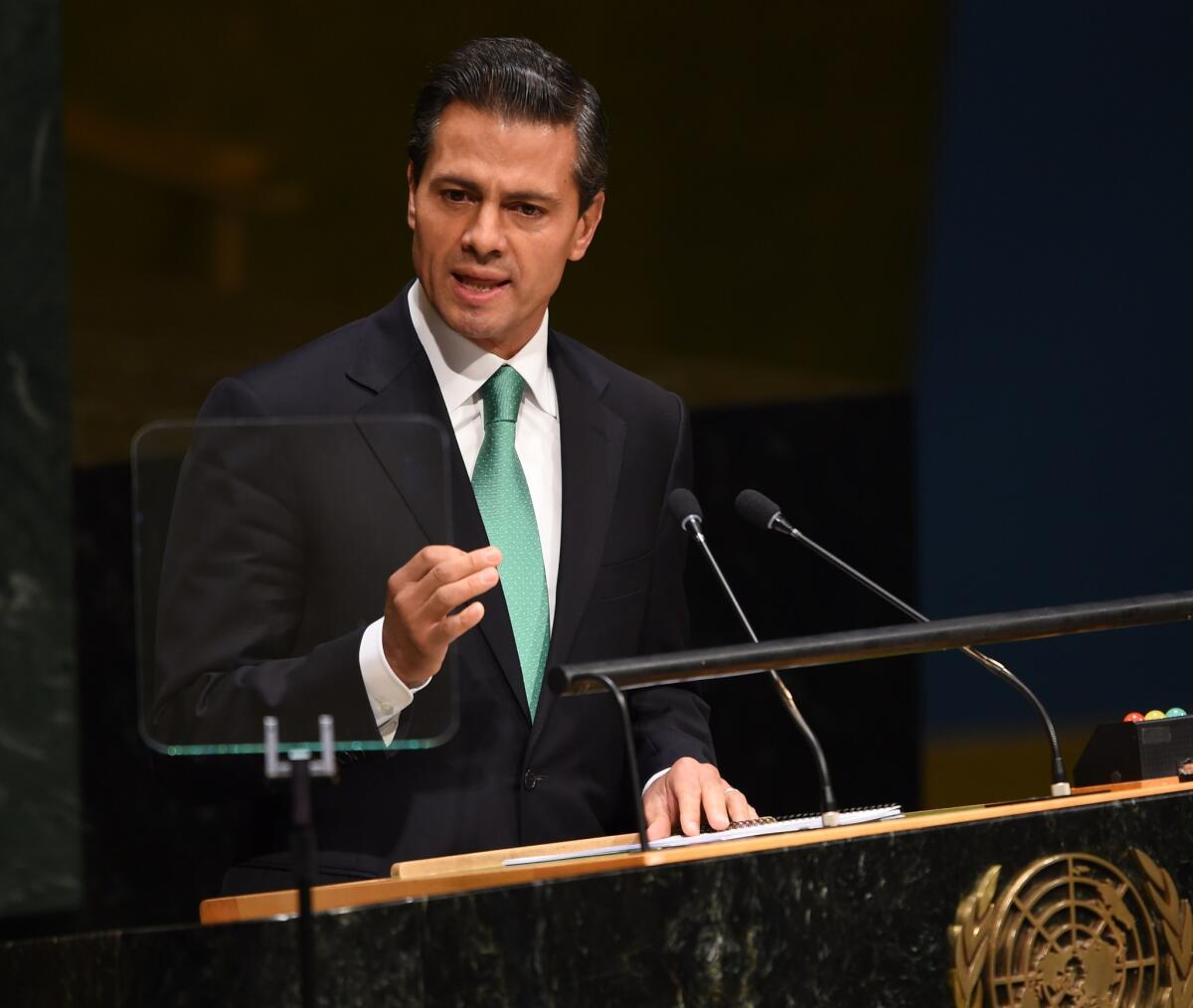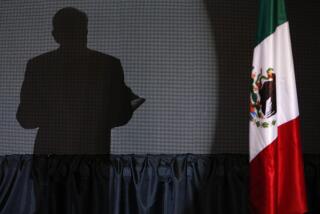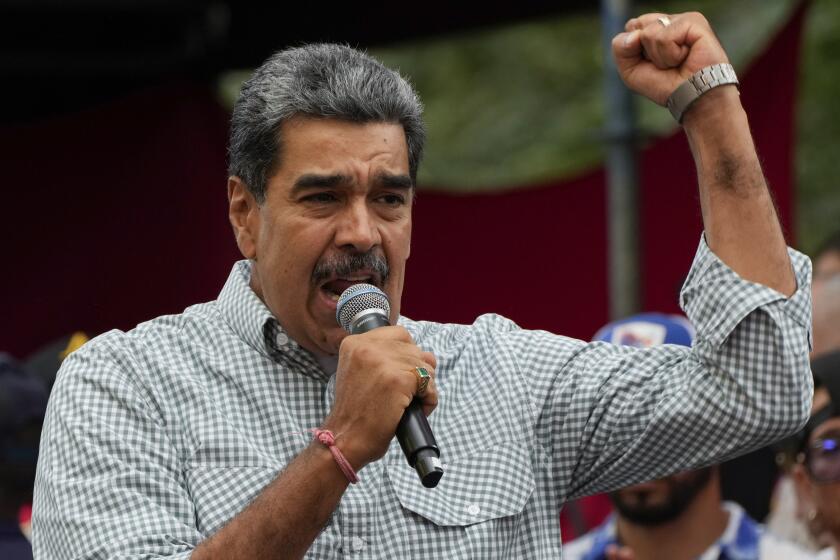Mass-killing prosecution will test Mexican President Peña Nieto

Mexican President Enrique Peña Nieto faces a major test of his commitment to human rights and accountability after his government took the rare step of arresting an army officer and seven soldiers in connection with a shooting that killed 22 people.
With outside pressure mounting, the army announced the arrests Thursday, nearly three months after the killings.
The army described the June 30 shooting deaths in Tlatlaya, 150 miles southwest of Mexico City, as a fierce gun battle with an armed gang. In addition to 22 of the gang members dying, one soldier was wounded, the army said.
But journalists who reached the site found evidence, including blood splatters on walls, that suggested not a battle but a one-by-one killing of the gang members. An unidentified witness told journalists that she saw soldiers torture and “execute” the gang members, many of whom were already wounded or had surrendered, including her 15-year-old daughter.
Human rights groups in Mexico and abroad have demanded a thorough investigation, and the federal attorney general’s office said it would look into the incident.
“It is crystal-clear to me that we have here one of the most serious massacres by the Mexican army in many, many years,” Jose Miguel Vivanco, head of the Americas section of the New York-based Human Rights Watch, said in a telephone interview. “There are two crimes here: a horrific massacre and the usual practice of covering it up.”
The army personnel were arrested Thursday and were being held on suspicion of “crimes against military discipline, disobedience and violation of official duties,” the Defense Ministry said in a statement.
Under a recent ruling of the Mexican Supreme Court, the case should be turned over to civilian prosecutors.
The arrests marked an about-face for the Mexican government. Senior officials in the state of Mexico, where Tlatlaya is located, had accepted the army’s version of events and praised it for its actions.
Whether the government conducts a successful investigation and prosecution remains to be seen. Some critics worried that the eight military men will become scapegoats, considering that a cover-up presumably would have reached higher circles of the army command structure.
“Tlatlaya is important because President Peña Nieto committed himself to a human rights policy distinct from that of his predecessor [President Felipe Calderon]. He has here an extraordinary opportunity to prove the difference,” security specialist Alejandro Hope wrote in a column Friday in the newspaper El Universal.
“Tlatlaya is important because the prestige of the army, a fundamental institution, is at stake,” he added.
Alleged human rights abuses by the military, including torture and extrajudicial killings, have soared in recent years as the army and navy are used as the front-line combatant force in Mexico’s war on drug cartels. It is rare, however, for the government to challenge the military and rarer still for soldiers to be prosecuted.
“We are investigating all the elements” of the case, Interior Minister Miguel Angel Osorio Chong said Friday in an appearance before Congress. But he added that he was confident that if found guilty, the soldiers “would be an exception, because we have a great army.”
Suspicions over the Tlatlaya killings first surfaced in reports by the Associated Press and the Latin American version of Esquire magazine.
For more news out of Latin America, follow @TracyKWilkinson
More to Read
Sign up for Essential California
The most important California stories and recommendations in your inbox every morning.
You may occasionally receive promotional content from the Los Angeles Times.











